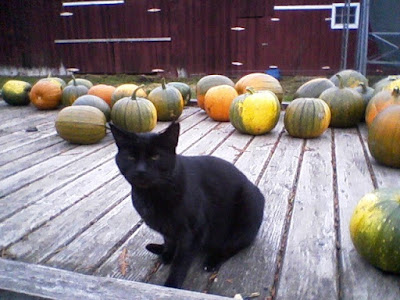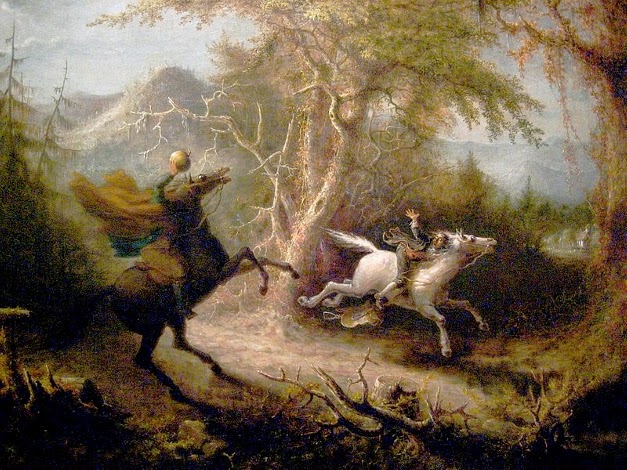From the Dust Returned
Ray Bradbury wrote many, many short stories, and several novels. From the Dust Returned is one of his "fix-up" novels, created by stitching together short stories that are loosely related, sometimes altering elements of the stories to make them fit better with each other.
Despite its Frankenstein's-Monster origins, this is one of Bradbury's masterpieces, a five-star novel. The 2001 hardback edition is covered by a dust jacket with artwork done by Charles Addams, a friend of Bradbury's, and the father of The Addams Family. This illustration was included with "Homecoming," which was a stand-alone short story in Mademoiselle magazine in October, 1946, and is Chapter Nine in the novel. The beauty of this novel lies in the richness of the prose, the humanity of the non-human (but for one member) Elliott Family of rural Illinois, and the macabre and grim atmosphere that haunts each page.
Elliott Family members include Cecy, an astral-projecting witch who can possess people, animals, and things, Uncle Einar, who has green wings, Timothy, the human foundling and family historian, and the Thousand Times great grandparents, a pair of royal mummies who do not live, are not dead, but exist. To close out this brief recommendation, I have posted a short passage below. Take a deep breath, focus, and enjoy. Happy Haunted Reading.
"Can," started Timothy, and Cecy finished, "can death be remembered?"
"Oh, yes. But only by the dead. You the living are blind. But we who have bathed in Time, and been reborn as children of the earth and inheritors of Eternity, drift gently in rivers of sand and streams of darkness, knowing the bombardment from the stars whose emanations have taken millions of years to rain upon the land and seek us out in our plantations of eternally wrapped souls like great seeds beneath the marbled layers and the bas-relief skeletons of reptile birds that fly on sandstone, with wingspreads a million years wide and as deep as a single breath. We are the keepers of Time. You who walk the earth know only the moment, which is whisked away with your next exhalation. Because you move and live, you cannot keep. We are the granaries of dark remembrance. Our funerary jars keep not only our lights and silent hearts, but our wells, deeper than you can imagine, where in the subterranean lost hours, all the deaths that ever were, the deaths on which mankind has built new tenements of flesh and ramparts of stone moving ever upward even as we sink down and down, doused in twilight, bandaged by midnights. We accumulate. We are wise with farewells. Would you not admit, child, that forty billion deaths are a great wisdom, and those forty billion who shelve under the earth are a great gift to the living so that they might live?"



